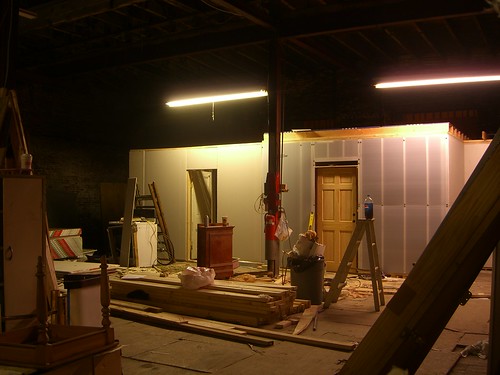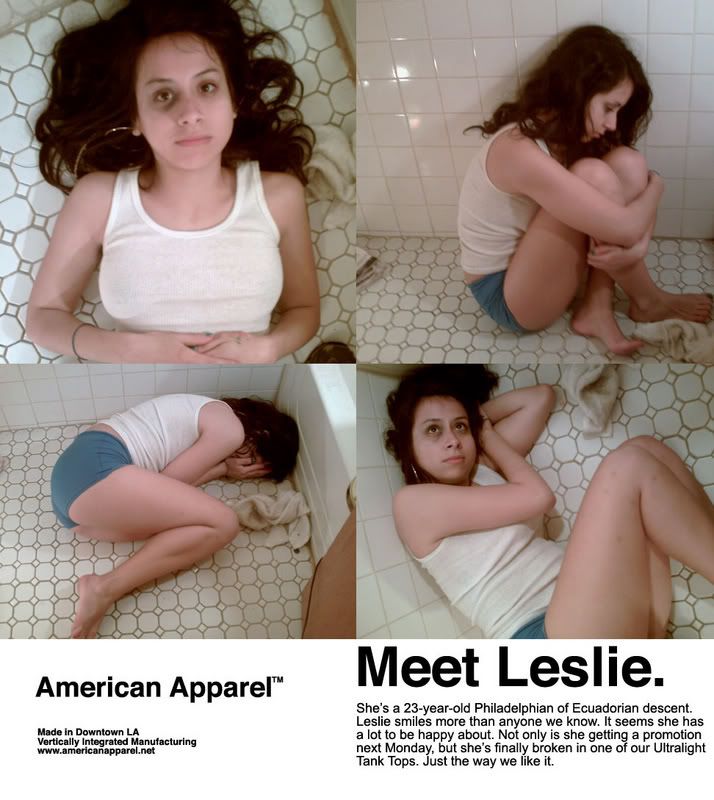
The Philadelphia Institute for Advanced Study has been taking form— or has already taken form— depending on your standards of completeness. Its rooms, its tools, and its minor and major destinies. It’s nice seeing what were previously sketches take on color and become freshly-spackled realities. To see space divided and defined by agenda, and once cold corners warmed by little actions, Dremels, and music from mixtapes. What was once a large stretch of potential is now a nest of littler actualities.
A while back, in the creeping cold, Scholar Dan Kozba, Ben Remsen, and I shared an evening discussion in the lobby about Lewis Hyde’s book,Trickster Makes This World, a masterpiece of archetypology which we’d all read and savored at a critical point in life. Hyde, in his own twilight realm of suggestion and mythic half-truths, has penned something that gives utter coherence to the interrelationships of luck, coincidence, and contingency; personality, interpretation and chance; modern strong poets and, of course, the synthetic hero-archetype of Hyde’s own re-imagining, Trickster.
Trickster is one of those works that momentarily re-organizes Experience into a weighty and well-told tale. Readers gain an added mode of perception, in which Luck may “favor the prepared mind,” Accidents may turn into Incidents, and everything is soon weighted down with meaning like a long wet bough. In Argentina, with my vital juices sapped by some weird mosquito-born illness, I dragged my weight from Palermo to San Telmo and back again for three whole weeks, occasionally stopping in for a coffee or round of Ms. Pac-Man. My thyroid had slowed to normal and the body processes badly dragged.
At that time, I noticed again the misunderstood meanings of metabolism. Metabolism is a fundamental part of perception, perhaps the Supersense — the root cause behind the perception of Time. There, in those weeks, Time certainly only towed me along. I did nothing to condition Experience. I never took the carefully-laid hints, the hints that the gods had offered, to hook into possibility, to aprovecharme. An invisible kryptonite medallion was overpowering me, keeping me from sensing the field of possibilities.
Once the lethargy subsided though, after three weeks, Buenos Aires itself suddenly returned to me, teeming again with obvious desires. Life was no longer just about killing time between meals. Before this recovery, I even had Trickster with me in Argentina, but my sluggishness had left me without the enthusiasm to read it correctly. I had an unprepared mind. Once back in Philadelphia, though, the lens had shifted back and I relished Trickster once more. The landscape was now filled again with obvious plans. Gifts-of-Hermes. Loopholes. Hints.
More to the point, re-reading this modern classic also brought me around to a prior volley of Lewis Hyde, The Gift: Imagination and the Erotic Life of Property. One day, when the weather is being irrational, I’m going to lock myself away in a log cabin, and write a full treatise on the relationship between culture and society. Between culture and everything else: economics, politics, utility, decency— and Necessity overall. The Gift brings me that much closer to a final stratagem, enough so that it has become recommended reading for the rest of the Institute faculty. Artillery for the impending kulturkampf. I may have slightly unpopular opinions on a few matters of culture, which may or may not conflict with Hyde— I can’t tell. Nevertheless, he has given me a fair bit of vocabulary.
Among my less popular opinions is the idea that culture should stay in the red, remain a money-losing venture. The strong poet should— with pleasure— toss his gold into gulleys and ditches. Hyde mentions that Whitman and Ezra Pound never made a living from their genius. Very few of my cultural heroes ever did— and I now consider this a blessing rather than an injustice. A model fit for emulation. Another, slightly more baffling desire of mine is the desire to liberate, or at least loosen, culture from many of its quaint or compromising institutions, the very institutions that are most often associated with culture: galleries, venues, and universities. Places of culture. On certain days of the week, I state things more aggressively, saying that I want to “destroy” the artworld and the music industry, and turn the university on its head. Today is Sunday, however, so I won’t be so blunt and Tristan Tzarish about it all.
In The Gift, Hyde speaks of culture as coming from the logic of a gift economy, and the sense of a gift impulse, rather than a market economy, saying that it’s a poor fit to think of cultural exchange as we do commodity exchange. However, many culturemakers— often the worst ones— do think along these lines, as producing a good or service while expecting reasonable compensation for their labors. I don’t mind, metaphorically or parodically, playing as though culture-making is like manufacturing coathangers and laundry detergents, playing the cultural capitalist accumulating “cultural capital.” I’ve always enjoyed this confusion, in fact— but mostly because I wanted to assault the economic spheres with cultural meanings, hijack its structures and items, and tease everybody a little. That is, I wanted to go up that street the wrong way— treating economic spheres non-economically.
At bottom, I want to live in a world where it is impossible, for the most part, to live lavishly off your culturemaking. In which the culture industry has collapsed, leaving little space for zillionaire rockstars and eight-digit sales figures in the artworld, but plenty of room for experiments, brilliant amateurism, and living culture. A year or two ago, lugging cables and amps around at the The Electric Factory— a legitimate rockvenue here in Philadelphia— I couldn’t help but compare that million-dollar operation with our own at the Athenaeum. I remember Lenny Kravitz arriving one day with four moving vans. One strictly for his wardrobe. Another dedicated to a lighting rig that, when fully erected, formed two gigantic letters: an L and a K. The smell of the bullshit was so incredibly overpowering, that I realized, then and there, that the music industry had absolutely no connection to culture whatsoever. It was its opposite— where culture and invention dried up, shriveled, died, and marched on without feeling.
Hyde draws on observations by Bronislaw Malinowski of the Kula, an island people on the eastern tip of New Guinea, who have a now-famous ceremonial gift economy of armshells and necklaces. These Kula gifts are not given in direct reciprocal exchange, as a currency or barter, but instead “move continually around a wide ring of islands in the Massim archipelago.” And so, though they are highly prized and esteemed by the Kula, they never perform the reductive function of currency, since you never know what your return might be, or when it might be. What is important is that these armshells and necklaces stay in motion— their kinetic energy is what bestows their worth. Western economic value is structured oppositely (pace certain theorizers). We seek and value the mode of ownership: potential energy, real or imagined. Even for objects— like diamonds, songs, and real estate— that can never be exhausted or fully consumed. I shouldn’t dub this Western economic value, but rather the “neurosis of capital,” an overextension of the logic of scarcity and the market.
Kula armshell ceremonies have little worry about scarcity though, and neither, for that matter, should Western culture. Culture is pure kinetics. Unlike coal, oil and firewood, the more it burns, the more it has. The only way, in fact, to squander cultural energy is to put it in savings, to translate it into crass market values, to anticipate its worth in a reciprocal exchange, to pander or compromise, to bring it to a halt. When culture no longer comes from a gift-giving impulse, we know the difference. I don’t know how, but we do. It becomes pale and flat, reduced and predictable; when it stops speaking freely, it stops speaking to us altogether. If it retains its force and integrity, it has a hope of becoming what I previously called strong culture— a current and currency of ideas that can counter the frankly historical and economic contours of a time and place, the overextension of market logics— perhaps even regaining ground lost to people like Lenny Kravitz.

